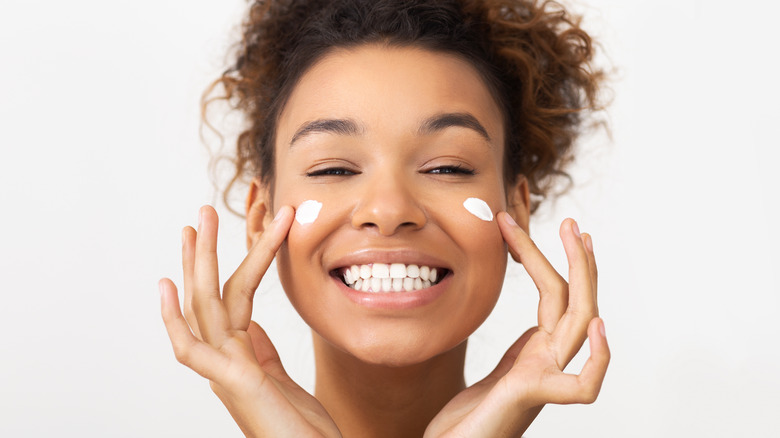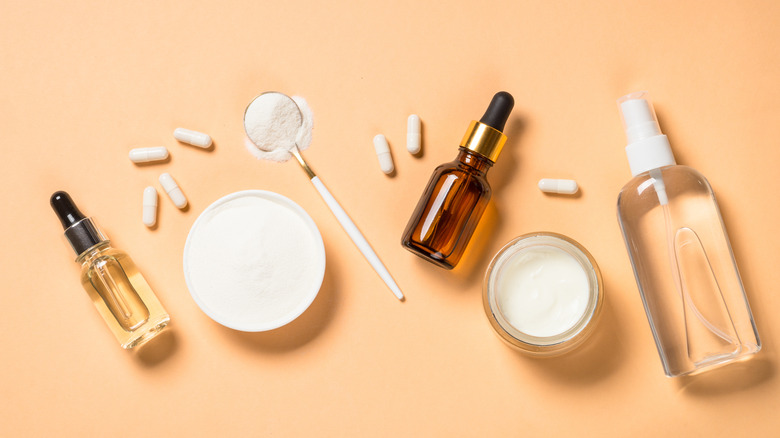Why You Should Be Using Zinc In Your Skincare Routine
We may receive a commission on purchases made from links.
You might vaguely know zinc as the white stuff that lifeguards sport on their noses. It's true that zinc oxide is a powerful ingredient in mineral-based sunscreen, per Dermstore. It works by physically reflecting light off the surface of the skin (think lasers bouncing off a mirror). However, zinc is far more than just a sunscreen.
According to Healthline, zinc is an essential mineral that the body uses primarily in its immune system. It has anti-inflammatory properties in the body and can help defend against viruses and bacteria. Even better, zinc may reduce skin redness, inflammation, and acne. While many skincare junkies swear by topical forms of zinc, oral supplements can work as treatment, too. According to Byrdie, oral zinc supplements can reduce the severity of acne and improve the appearance of fine lines, wrinkles, and spots. So, between oral and topical treatments, how do you decide which is best for you?
The different forms of zinc
Skincare experts revealed to Byrdie that both topical and oral forms of zinc have their place in the skincare world. A topical treatment, such as a cream, liquid, or gel, allegedly works with other vitamins and minerals to treat acne lesions. Allure also says that the antibacterial properties in zinc can prevent further breakouts.
But which forms of zinc work best topically? Apparently, the answer is unclear. A paper in the "Journal of Drugs in Dermatology" states that zinc pyrithione is usually used to treat dandruff and seborrheic dermatitis, but can also help clean the skin and reduce acne on the face and body. A review published in "Dermatology Research and Practice" suggests that additional forms of zinc, such as zinc oxide and zinc sulfate, can treat mild to moderate acne as well. As Paula's Choice points out, however, some research has shown that topical zinc only works well when paired with an antibiotic.
In terms of supplements, the most common types of zinc available in the form of pills include zinc orotate, zinc methionine, and zinc acetate, per Paula's Choice. A review from the "Journal of Clinical and Aesthetic Dermatology" found that OTC zinc effectively treated inflammatory and bacterial acne. However, Healthline notes that oral supplements may come with side effects such as nausea and vomiting, and can have negative interactions with certain medications. Whether you decide to try out topical zinc or oral zinc, make sure you gradually incorporate it into your routine to mitigate side effects, and before adding any oral supplements, speak with your doctor first.

